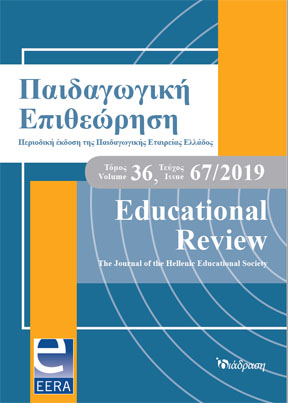Αναλυτικά Προγράμματα και Ενιαία Εκπαίδευση
Main Article Content
Περίληψη
The implementation of inclusive education seems to bump onto current ideology of contemporary education systems and the curriculum, which are based on the prevalent education policy that sets utilitarian goals. As a result, unfair procedures and functions are underpinned, which produce and reproduce social discrimination. Barriers to inclusion are raised by several methods, such as the prevalent rhetoric in the curriculum about children with disabilities, the hidden curriculum and the monolithic assessment methods, which are formed by the social hierarchy and the dominant power relations. Thus, despite the basic tenets of inclusion education, children with disabilities in contemporary schools are excluded and marginalized. Hence, it seems essential to reform the curriculum and render it inclusive. To this end, curricula should constitute the means to promote cognitive and emotional development of children. Therefore, curricula should propose the tools to raise the barriers to inclusion and provide equal opportunities in quality learning. In this way, inclusive education may be established in the short and long-term.
